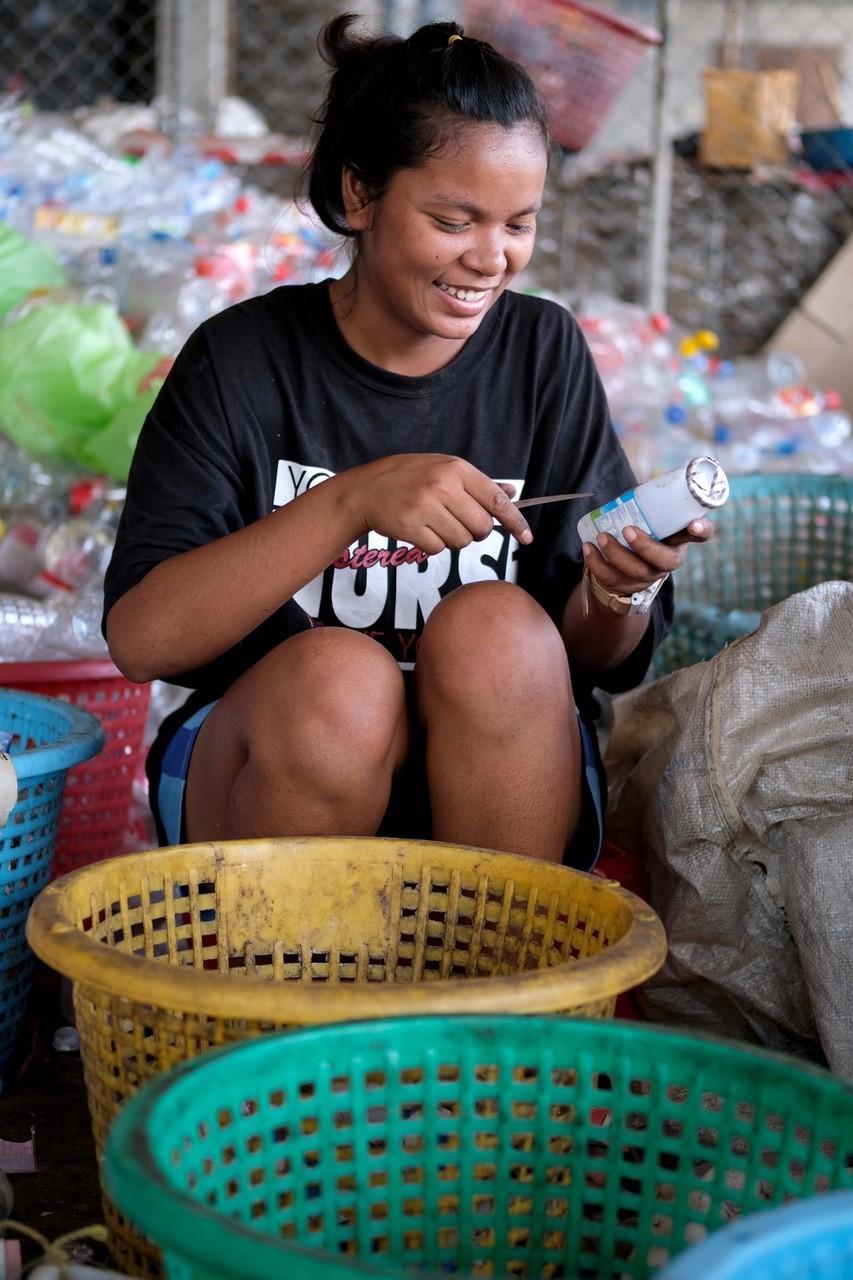The Switzerland-based Jan & Oscar Foundation was founded in memory of two children who lost their lives in Thailand during the 2004 tsunami. Since their deaths, their mother, Laurence Pian, has implemented more than 40 social projects, constructing schools and creating jobs. Swiss company Tide Ocean Material was founded by Thomas Schori and is better known by its logo, #tide.
The company turns discarded plastic found in oceans and coastlines into useful products. In partnership with the Jan & Oscar Foundation and the International Union for Conservation of Nature (IUCN), the company has expanded its operations to Thailand, which is managed by Michel Pardos, who heads the Jan & Oscar Foundation in Thailand. Guru spoke to Pardos to find out what the project hopes to achieve in the Kingdom.
What does the Jan & Oscar Foundation do in Thailand?
I joined the Jan & Oscar Foundation in 2016 to manage a small-scale circular economy initiative in Ranong. Last year, we decided to help reduce the amount of plastic leaking into the marine environment. Tackling marine debris and plastics is a wonderful opportunity for innovation. We need to develop creative, economically viable advanced technologies to recycle ocean-bound plastics and explore new markets. #tide is the perfect partner to create a closed-loop system.

(Photos: #tide)
Can you tell us the core mission of #tide in Thailand?
#tide wants to reduce the problem of ocean plastic, which has become a big threat to the environment and all species. In Ranong, the foundation give plastics a value and have people help to collect it. Fishermen are being paid to collect plastic waste along the coastlines and on islands in the Andaman Sea and deliver it to the dock of our social enterprise. Here, the different kinds of plastics are sorted, washed and prepared for the upcycling process.
What is a circular economy and how this is being set up on the five islands in the Andaman Sea?
A circular economy is an alternative to a traditional linear economy (make, use, dispose of) in which we keep resources in use for as long as possible, extract the maximum value from them whilst in use, then recover and regenerate products and materials at the end of each service life. By collecting ocean plastic, we are able to upcycle them into new fashion items such as clothes, bags, accessories and other useful products. We emphasise on the efficient use of resources and add economic value, while helping to solve environmental and social issues.
Our focus is on islands because there is no system in place to collect plastics efficiently. However, shifting the system to a circular economy involves everyone: NGOs, businesses, governments and individuals. We need to mobilise fishermen and local coastal communities. We collaborate with them by offering them training and a fair price for their plastics.

How is the waste upcycled?
#tide ocean material collects plastic granules and yarns, which are upcycled into bags, chairs or electronic devices. Three years ago, #tide partnered with the Swiss Institute for Materials Technology and Plastics Processing, a branch of the University of Applied Sciences. In a study, they analysed ocean plastic waste and figured out how to regenerate their damaged molecules without the use of chemical additives, in an eco-friendly way. This research, paired with #tide's know-how and its connections to the Swiss watch industry, led to a technical process by which single-use plastic that were exposed to UV rays and saltwater are transformed into new durable products, with a long usage life. Recently, we developed the world's first watch made of ocean plastic, with the Swedish brand Triwa.
What is the goal of #tide Thailand?
Our production facility is in Switzerland. From there, we deliver the granules and yarn to many companies around the world. Our goal for #tide Thailand is to be able to process everything on-site in Thailand. But until that happens, we are compensating for the CO2 emissions of our transports with solar power usage.
What has the feedback been?
We are overwhelmed. More than 80 companies around the world are developing products with our materials. Many big brands want to replace virgin plastic with ocean-bound plastic. We have also been getting ocean plastic from the Philippines and have processed 13,608kg of that waste into #tide ocean material, for companies in the US, Italy, South Korea, Sweden and France.

Are products made with #tide durable and safe to wear?
Yes. We have passed several tests and certificates. They all prove that our material is compliant with international standards like Reach [Registration, Evaluation, Authorisation and Restriction of Chemicals] and RoHS [Restriction of Hazardous Substances].
What happens to #tide products when we can no longer use them?
#tide collaborates with brands like Triwa, Jason Hyde and Sneakerness, and each brand has its own policy. Most of them care about sustainability and have a return policy to recycle their products again. We generally focus on products with longer lifespans. We don't create single-use plastic that will end up in the ocean after five minutes of use.
Visit tide.earth.

